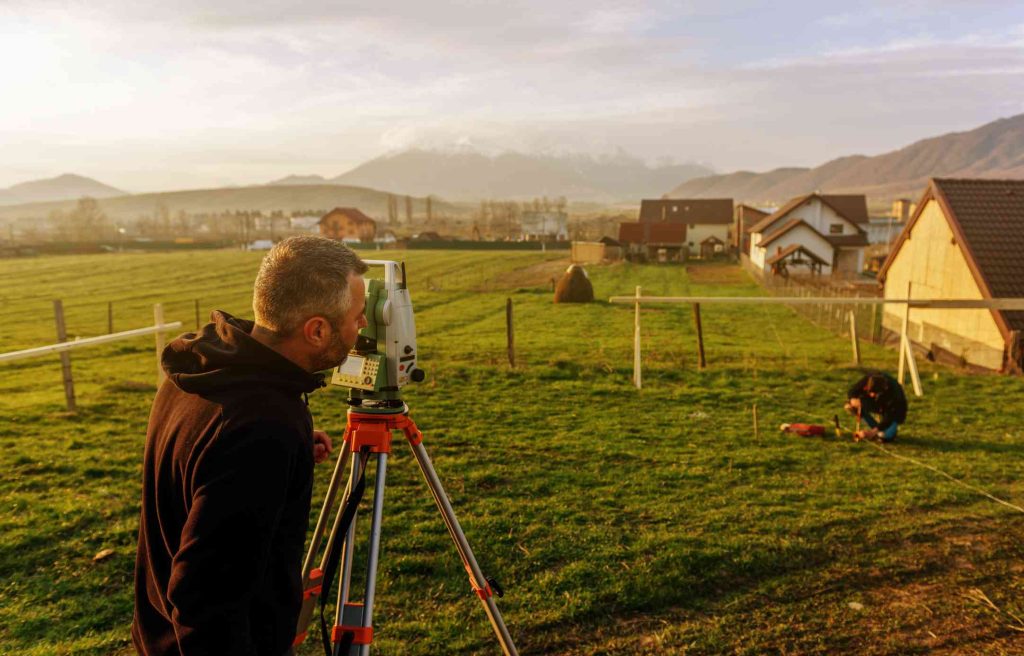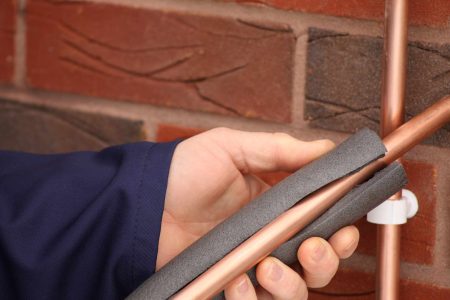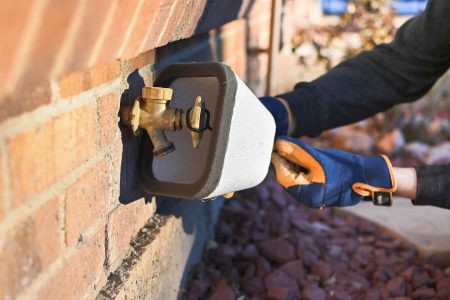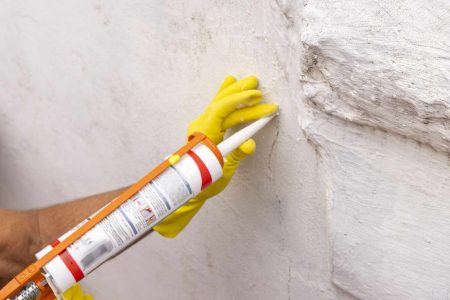For some homeowners, it can be a surprising and unpleasant experience. You’re minding your own business on your own property, which you own free and clear, and someone enters your property and asserts the right to be there.
If it’s an intruder, the natural response is to call the police. Yet this is a surveyor. Can a surveyor of private property legally come onto neighboring properties? Or is the surveyor trespassing?
What Is Being Surveyed
A surveyor doesn’t just need access to the property that they have been contracted to survey. The surveyor often needs access to bordering properties, as well.
Owners of those bordering properties usually have nothing to do with the property being surveyed and have no motive to allow access to their own property.
Sometimes, though, there might be projects, namely fence construction, when both owners have a shared interest.
Often the owner of the property being surveyed might be putting in a pool or outbuilding like a shed near property lines or is building upward and outward to maximum limits. This is a type of home remodel that is becoming more prevalent. In this case, the neighbor has nothing to do with the project, though the neighbor might be concerned about being encroached upon.
Surveyor May Not be Trespassing on Your Land
As it turns out, that surveyor either has a clear legal right to your property or is trespassing. If the surveyor is trespassing, they are just like any other intruder.
States may have their own right of entry laws that allow a surveyor to access bordering properties.
For example, in New York State, this is allowed under N.Y. GOB. LAW § 9-105, stating that “…the land surveyor and authorized agents or employees of any such land surveyor may enter upon or cross any lands necessary to perform surveying services.”
How did all of this come about? Through the concerted efforts of a lobbying group and a law firm. The New York Association of Professional Land Surveyors (NYAPLS), working with the White Plains, NY law firm of Wilson Elser, pushed the initiative forward until it was signed into law by New York Governor Pataki in 2005.
In your own state, that’s most likely how surveyors will gain access to your property: only after a special interest group pushes the matter into law.
Dangers of People Trespassing on Property
Two dangers of professional surveyors entering your private property: injury to the surveyor and damage to your property.
Surveyors are concerned about holding professional liability insurance (E & O) in the event that they make a mistake that costs their client. It’s also recommended that they hold general liability insurance. But in many states, none require any kind of insurance as a prerequisite for licensing.
If a surveyor moves around your property and becomes injured and is not covered with personal insurance, the homeowner is responsible. The surveyor may sue you, because that ladder you were using to paint your house fell on the surveyor’s head.
Your property may be damaged, as well. Using the New York example again, the right-of-entry law does not “remove civil liability for damage,” meaning that you, the neighbor, can sue the surveyor if he manages to damage your property in the course of his professional activities.
Asking Trespassing Surveyors to Leave
Do you believe a surveyor is trespassing on your property?
Search for “[your state] surveyor right of entry” to see if your state allows surveyors to access your land. There is not a single source for information about this. Not only that, but also your Internet search may turn up a patchwork of special interest group initiatives, proposed laws, and enacted laws. You will need to sift through this information to see if a law has been enacted.
Even if surveyors do have this legal right, it’s not as if they can saunter onto your land whenever they wish. Oregon §672.047, like New York, allows surveyors right of entry. But unlike New York’s law, which vaguely says that surveyors must give “reasonable notice” of the survey, Oregon surveyors must provide notice at least seven days in advance, either by mail or personally.
In short: If your state does not have right-of-entry laws, you are not required to let surveyors onto your land.
Permitting Surveyors on Your Land
There are many reasons why you might allow a neighbor’s surveyor on your land. For one, you might simply wish to be neighborly. Or, as mentioned earlier with the fence, you might have common interests.
Another reason is that this is the neighborly thing to do. If you’re the put-upon neighbor today, things might be reversed in the future and you may need a survey of your own property. It’s a judgment call.
You might find, via your neighbor’s survey, that you have more land than you thought you did. It happens.
Solution to Trespassing Surveyor Issue
One take on the issue is from Robert Dean, PLS, in his article Right of Entry? Dean is concerned with both his profession’s need to enter neighboring properties and with private property rights.
Dean proposes that “an hourly fee, equivalent to the surveyor’s usual crew rate, for the time the surveyor, personnel, materials, or equipment, spends occupying the soil of the third party property” might be one solution to this problem.
The surveyor and client are taking something from you, the neighbor: access to your land for a period of time. With Dean’s argument: Why shouldn’t they have to pay for it, much as churches or fraternal organizations charge groups nominal fees to access their land and structures?
Read the full article here






